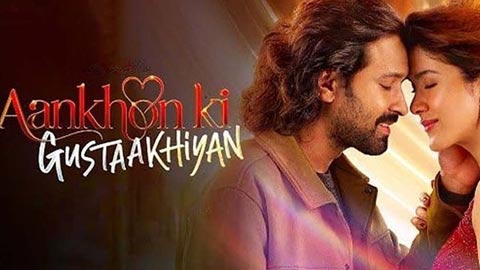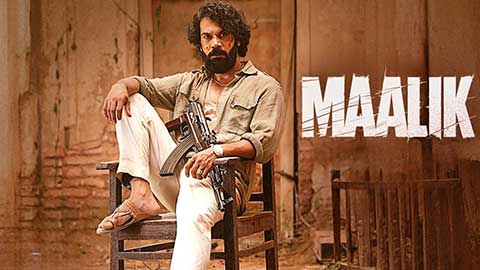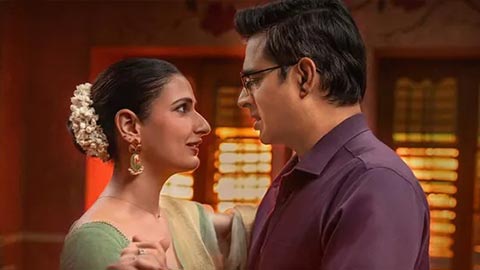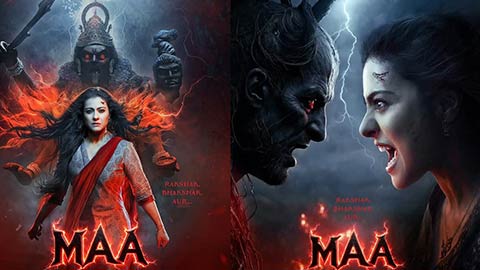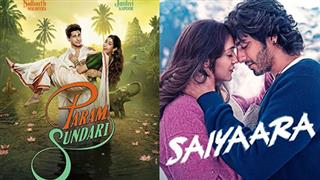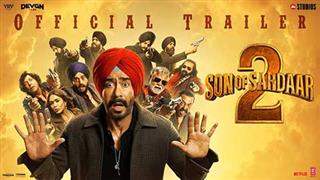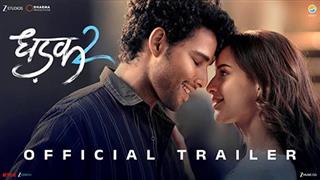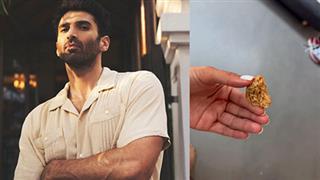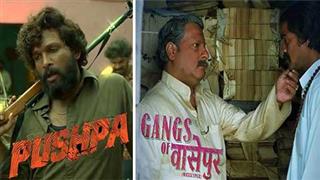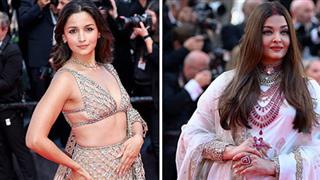But even then, it's the beauty of a life well-lived.
Chronicling the turbulent, path-breaking, trend-setting adventures of Howard Hughes, "The Aviator" goes past the mandatory check posts of the biopic genre without a hitch.
But, at the end, "The Aviator" still appears unfinished. The background and colours may be vibrant, but the framing seems to be left out. And what we are left looking at is a prototypically eccentric genius who dared to dream at the risk of plummeting to bankruptcy.
Master raconteur Martin Scorcese is no stranger to real lives - remember boxer Jake LaMotta's turbulent life in "Raging Bull". In "The Aviator", he takes us into the frightful paranoia of Hughes' mind.
The scenes written to accentuate his growingly obsessively behaviour, are frightfully and painfully graphic, and DiCaprio gets away from his pretty-boy image to give a truly titanic performance that screams "Oscar!".
DiCaprio, who had earlier got together with Scorcese to give a bludgeoning performance in "Gangs Of New York", gets into Howard Hughes' mind and keeps the character a step ahead of the real man. More sinister than seductive, DiCaprio is at his best when conveying his character's ambitions and paranoia.
 There's a sequence where Hughes meets a private detective (Willem Dafoe in a cameo) to get pictures of
his live-in girlfriend hobnobbing with Spencer Tracy. The moment of tragic revelation has deliberately been
reduced to a brutal and sneaky moment.
There's a sequence where Hughes meets a private detective (Willem Dafoe in a cameo) to get pictures of
his live-in girlfriend hobnobbing with Spencer Tracy. The moment of tragic revelation has deliberately been
reduced to a brutal and sneaky moment.Scorcese's period recreation has always been impeccable. Whether "Gangs of New York" during the civil war or the biblical era represented in "The Last Temptation Of Christ", the director definitely knows how to get into an ethos.
But the question is does he always know how to get out of it?
The trouble in "The Aviator" starts at the exit point.
The lingering lascivious dramas surrounding Howard Hughes' life, his daring attempts to build planes and bed some of Hollywood's most beautiful women and his raging defiance are all beautifully portrayed.
But the on-screen chemistry between DiCaprio and Cate Blanchett who plays Hollywood queen Katherine Hepburn and Kate Beckinsale who plays the legend Ava Gardener is close to nil.
 You can take Scorcese out of organized crime ("Taxi Driver", "Mean Streets", "Good Fellas", "Gangs of
New York"). But you can't take organized crime very far away from Scorcese.
You can take Scorcese out of organized crime ("Taxi Driver", "Mean Streets", "Good Fellas", "Gangs of
New York"). But you can't take organized crime very far away from Scorcese. His approach to a subject forever dwells on the dark and eccentric aspirations of the spoilt tycoon rather than his humane side.
In "The Aviator" too, apart from the scenes showing Hughes' close encounter with insanity, there aren't too many moments of unbridled character study.
Throughout we see Hughes as a stubborn dreamer, challenging the status quo. Sequences are designed to accentuate Hughes' bombastic self-projection rather than his expansive vision.
The film's most un-laboured interlude is the one where Ava Gardener gets Hughes out of his self-imposed paranoic isolation with humorous affection.
"Marry me," he urges. "No, you're too crazy for me," she shoots back.
The crazy genius of a mind that could see the future is constructed through a vast spectrum of characters, incidental and italicised.
As portrayed by Scorcese and DiCaprio, Howard Hughes is a man of calculated caprices.
 The sweaty anxiety of filmmaking in Hollywood, the intrusive hysteria of the press photographers and the
genius of a mind that dares to cross the frontiers of convention, are brilliantly executed in this flavourful
biopic.
The sweaty anxiety of filmmaking in Hollywood, the intrusive hysteria of the press photographers and the
genius of a mind that dares to cross the frontiers of convention, are brilliantly executed in this flavourful
biopic. But somewhere in the quest for a true life, Martin Scorcese stands back to gaze at his own work, thereby robbing the colourful raunchy figure at the centre of its volatile passions.
As far as biopics go, "The Aviator" takes an impressive stab at an immortal life missing immortality for itself by a wide margin.




